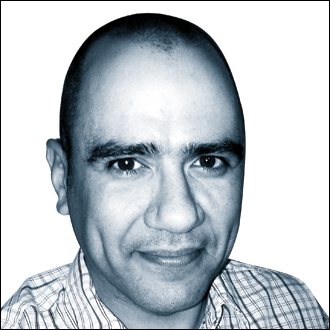Can social media save general practice?

During the 2011 riots in London and other cities in the UK, much of the activity was co-ordinated through social media and mobile messenger services. Where there had been discontent, people had the ability to harness and mobilise it to devastating and disastrous effect.
Recently GPs have shown that they too can co-ordinate themselves into taking action against the media, Government and other organisations with a letter of protest to The Telegraph over the plans to ‘name and shame’ doctors who failed to meet cancer diagnosis targets, which garnered 650 signatures, a similar letter to Jeremy Hunt with 850 signatures and an open letter to David Cameron about proposals for GPs to work 12-hour days and seven-day weeks with 100 signatures being published recently. The letters harnessed the power of social media to connect doctors and their supporters in a novel way.
We need a conversation about changing of climate under which our health care services operate. But just as there are climate change deniers, there are those in the NHS who do not accept that the waters are rising and that the atmosphere of general practice is being warmed by the greenhouse gases of impossible pledges by political parties and regulatory bodies. There is a reluctance to accept that the toxic build-up of excessive patient expectation is a major factor in the lowering of GP morale.
GPs are doing what they can to change the atmosphere, demonstrating a willingness to fight back, back each other and stand up for a profession that is slated by the Government, the media and is under pressure from NHS executives, the CQC, local CCGs and, most importantly, patient demand to perform quicker, longer and more effectively (essentially, more cheaply). Lately GPs have been showcased in the media talking about the excessive demands that patients can place in general practice.
Patient demand is not tackled by politicians or organisations purporting to represent GPs, for fear of a backlash. If general practice is the dam that holds back the demand for many hospital services, then it is certainly springing some leaks under the burden of excessive patient expectation. As the pressure is rising we are doing our best to place ourselves in the gaps to protect the secondary care services downstream. Despite the fact that many GPs are soaked and exhausted it seems the response from on high is to build a bigger dam, with non-existent funds or find more GPs, from somewhere, to plug new gaps.
But there are only so many holes that can be plugged.
Using social media to co-ordinate the response from grassroots general practice will result in one of two things: either the refusal of GPs to continue plugging those gaps, as we head for the hills to protect ourselves; or the gathering of a louder collective voice to change the minds of climate change deniers to help us decrease the volume amassing behind the dam.
Hopefully the latter will work.
Dr Samir Dawlatly is a former secretary of the RCGP’s adolescent health group and a GP in Birmingham.









